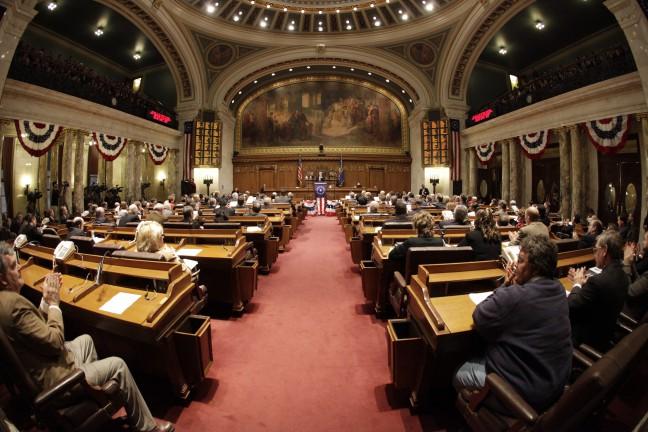Two republican lawmakers in the Wisconsin state legislature introduced a bill to protect free speech on University of Wisconsin campuses this week.
State Sen. Chris Kapenga, R-Delafield, and State Rep. Cody Horlacher, R-Mukwonago introduced the Campus Free Speech Bill which makes it the responsibility of the UW Board of Regents to discipline any actions inhibiting free speech by campus speakers, students and faculty. It also allows campus speakers, students and faculty to discuss anything protected by the first amendment.
“Here in Wisconsin, we have seen examples of free speech being suppressed on our university campuses,” Kapenga said in a statement.
One such incident supporters said motivated the bill was conservative talk show host Ben Shapiro’s speech at UW-Madison in 2017. Protestors blocked the stage of the talk and interrupted Shapiro’s speech several times, arguing that his views aligned with those of white supremacists.
Incidents haven’t been limited to the flagship UW school, which is often criticized for stifling coservative students. During another incident at UW-Stevens Point the school’s administration was forced to intervene and overrule the student government in order to allow for the creation of a local chapter of a national conservative group.
But the legislation is similar to a failed 2017 Republican bill. Soon after, the Board of Regents passed a policy with sanctions against those found to be violating the free speech rights of others.
Student groups at UW schools have stated that, because of the policy, the new bill is redundant. Connor Mathias, vice president of the UW-Milwaukee Student Association told WPR the legislature’s involvement seemed like an unnecessary overstep given the pre-existing policy.
Laura Downer, chair of the Associated Students of Madison added that UW-Madison even worked with students to create a policy on protest guidelines, published September 2018, following the Board of Regents’ policy.
Kit Beyer, spokesperson for State Rep. Robin Vos, Speaker of the Assembly, told WPR speakers want these policies to expand beyond the schools and cemented in state statute. According to WPR, the current bill being circulated nullifies any existing policies on freedom of expression.
According to WPR, the bill is looking for cosponsers until Friday, Aug. 23.


